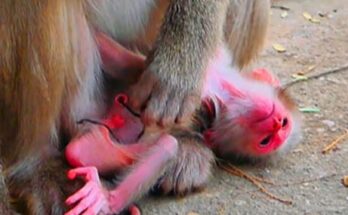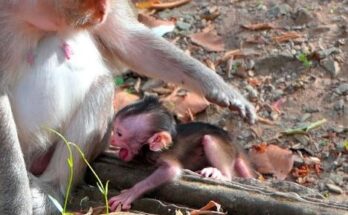If you’ve ever observed baby monkeys in the wild or in captivity, you might have noticed their sudden, high-pitched screams. These outbursts can be startling, often resembling the temper tantrums of human toddlers. But what causes these dramatic reactions? Are they merely expressions of frustration, or do they serve a deeper biological and social function?
Understanding Primate Communication
Monkeys, like all primates, have a complex system of communication that includes vocalizations, body language, and facial expressions. Screaming is one of the most intense forms of vocalization, usually indicating distress, fear, or the need for attention. Baby monkeys, in particular, rely heavily on screaming to communicate with their mothers and other group members. Unlike adult monkeys, who have a broader range of vocal cues, infants are limited in their ability to express themselves, making screaming a crucial tool for survival.
Reasons Behind the Screaming
1. Seeking Attention from Their Mothers
One of the primary reasons baby monkeys scream is to attract the attention of their mothers. In many primate species, infants remain closely attached to their mothers for warmth, nourishment, and protection. If a mother momentarily moves away or appears distracted, the baby may scream in protest, signaling its need to stay close. This behavior is similar to a human baby crying when separated from its caregiver.
2. Frustration and Tantrums
Like human toddlers, baby monkeys can have temper tantrums when they don’t get what they want. If a mother refuses to nurse them at a given moment or if they are denied access to a favored playmate or object, they might respond with loud, insistent screaming. This is particularly common in species with strong maternal bonds, where infants use vocalizations as a way to influence their mothers’ behavior.
3. Fear and Perceived Threats
Baby monkeys are extremely vulnerable in their early stages of life. If they sense danger—such as the presence of a predator, an aggressive adult, or even an unfamiliar monkey—they may scream as a distress call. This alerts their mothers or other members of the group, who may respond by providing protection.
4. Social Conflict and Rivalry
In some cases, baby monkeys scream due to conflicts with siblings or other young monkeys. In hierarchical monkey societies, even infants can be affected by social dynamics. If a dominant baby is given priority access to food or attention, lower-ranking infants may react with loud protests. This is similar to sibling rivalry in human families, where children compete for parental attention.
The Role of Screaming in Primate Development
Screaming is not just an impulsive reaction—it plays a significant role in a baby monkey’s development. By vocalizing their needs and emotions, they learn how to interact with their mothers, understand social cues, and navigate the rules of their group. Over time, they refine their communication skills, transitioning from excessive screaming to more nuanced vocalizations and gestures.
In conclusion, the sudden screaming of baby monkeys may seem like temper tantrums, but it is a vital part of their survival and social learning. Whether they are seeking comfort, expressing frustration, or warning of danger, these outbursts serve an essential function in the primate world.


